


The couple wanted to make sure that they received their money’s worth with the best possible deals available in the property market. Indeed, the assistance a buyer’s agent brings to the table is undeniably invaluable.
And that’s where ‘go-to buyer’s agents to the stars’ (with whose names you may be familiar with) like Deborah West and Janne Sutcliffe come into the picture.


Although West and Sutcliffe won’t reveal (understandably!) the names of their A-lister clients, both have been champions for celebrities on the look-out for great property deals in the Australia market—perhaps celebrities like Hugh Jackman, Cate Blanchett and Nicole Kidman!
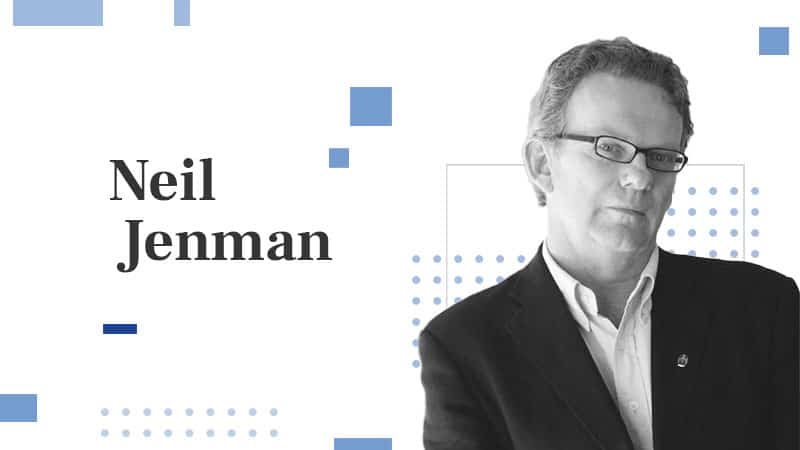
However, at first, he was unsure of using a buyer’s agent. In fact, in an article published on the Australian Financial Review, he explained this hesitation.
According to Neil’s estimate, only 2.5% of Australian buyers use agents.
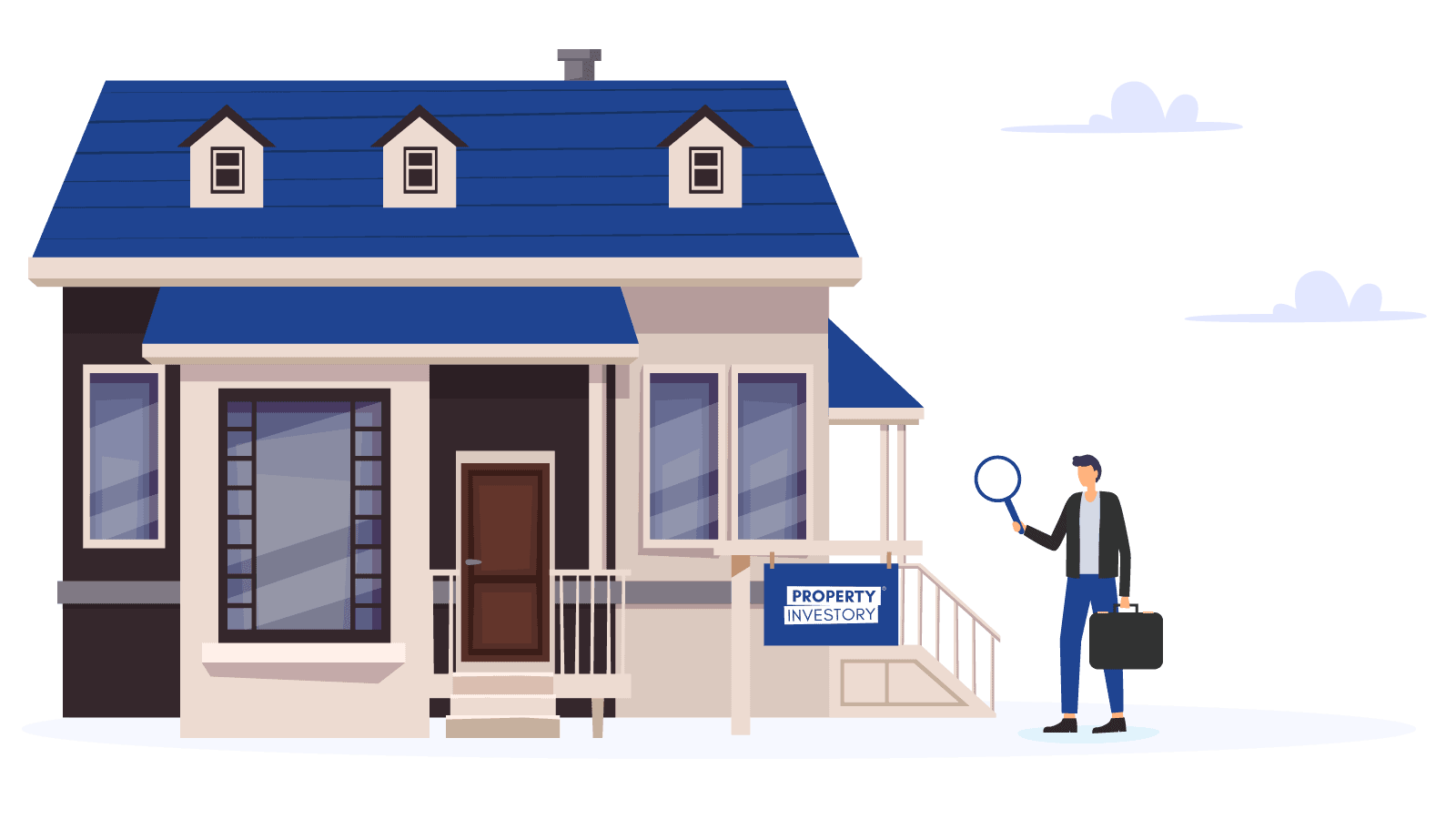
He says that he’s used buyer’s agents for two of his property purchases.
And thanks to his agent, he’s saved a total of $250,000 that he can put towards other investments. (Isn’t that great? I mean, that is awesome for him.)



On top of that, the agent said that there was no need to see that pesky strata report. But the potential buyer chose to wait and see what happened. He wasn’t prepared to raise his offer, and he certainly wasn’t going to buy without doing his due diligence.
The agent called again a couple of days later. And this time, the agent gave him an earful for wasting her time!
Again, she tried to pressure the potential buyer into agreeing to the purchase now. He’d miss out on a bargain if he didn’t, she pressed on.
Don’t worry! Before this story even takes a turn for the worse, let me end it—thankfully, the potential buyer chose to withdraw his offer.
Even if this was a made up story, I’m sure that when you imagined such a scenario, glaring warning alarms went off in your head.

Yes, these pressure tactics are a sure-fire sign that an agent is trying to hide something. And they’re tactics that you may have come across during your own buying journey.
If only you have somebody in your corner who’d fight for your interests, instead of those of the seller on whatever property you’re looking to buy. Well, that is exactly what a buyer’s agent does.
In simple terms, a buyer’s agent is a champion for your what’s best for you and for your property goals.

And yes, if you want to exhaust one of the best means to acquire a property for the best price—that won’t deplete you or your funds but actually will be good for you and your future finances—, you’ll need a buyer’s agent.
So, what roles does a buyer’s agent exactly play in helping you find the right property?



So, the end result for Gino was that he had an expensive failure on his hands. And that’s the exact situation that you want to avoid.
And this type of situation is where a buyer’s agent may be able to help—specifically, seeking advice from a commercial buyer’s agent.


Residential buyer’s agents or sometimes called a ‘buyers advocate’ have their strong A-game in looking for properties that are designed for people to live in.
They provide personalised service and care to you, the buyer, who is their priority when negotiating deals with sellers and tackling the legal issues that come with buying a property.

Residential buyer’s agents examine the local property market, making sure your goals and strategies are met as they advise you on the best ways to deal with—
As the buyer, you just need to be open about your goals, short-term and long-term, and the current status of your finances.
(Because they’ll need to know if you can practically afford the house or unit you’re thinking of purchasing in the first place.)
So, in a nutshell, if you want to invest or purchase a house or a unit, the buyer’s agent you need is a residential buyer’s agent or buyer's advocate.

On the other hand, a commercial buyer’s agent examines more than just the local property market.
They also understand the economy of a location and the types of services in demand.
This information then provides them with insight into the types of businesses that could serve the location. And that, in turn, helps them to highlight properties that have the potential to turn a profit.
Simply put, commercial buyer’s agents research properties based on a different set of criteria to that of residential buyer’s agents.

Thus, you know that you’re getting a specialist when you work with a commercial buyer’s agent.
So now, if you’re looking to invest in commercial real estate, such as:
the best buyer’s agent you need on your team is a commercial buyer’s agent.

A commercial buyer’s agent chooses to specialise in a market for your benefit. And that means they provide more accurate advice within that niche when compared to more generic agents.
In fact, trying to use a residential agent to buy a commercial property is like trying to fit a square peg into a round hole. It doesn’t fit because a residential agent doesn’t know about the specific challenges at play.
Thus, they’ll draw on irrelevant experience when searching for a property.

Commercial investors usually have a smaller pool of potential tenants to choose from. Furthermore, they need to purchase a property based on the demands of the local area.
For example, there’s no use buying an industrial property in a location that doesn’t have these types of business. And, those are what differentiate residential buyer’s agents to commercial buyer’s agents.
As you continue to read through this article, I’ll share with you more details on the expertise buyer’s agents bring to the table with the help of some of Australia’s leading buyer’s agents.
You know, with a good buyer’s agent, you may just avoid a repeat of Gino’s horror story.
....Now, I hear your hesitation on the cost of using a buyer’s agent. And that is a valid concern. Well, let me tell you more about that.

It’s true that is not an easy question to answer for several reasons.
First, the cost of an agent depends on the services you need them to provide.
You may spend as little as $500 if you just want an agent to attend an auction for you. Or, you could pay thousands of dollars if you want a service that involves researching and locating properties.
Second, agents differ in terms of the payment structures. Some work on fixed fees, whereas others work on a commission-based model or a mix of both. And each of these models has its pros and cons.
Okay, so let’s look at these models a little more in detail.

With a fixed fee model, you pay a set amount of money for a specific service.
The auction example I just mentioned works here. In this scenario, the agent charges a fixed fee of $500 to attend an auction on the buyer’s behalf.
Of course, the amount you pay rises depending on the level of service you require of the agent. You can expect to pay up to $15,000 if you want the agent to leverage their full talents in your service.

Now, with this model, the agent may charge a fixed fee upfront for a ‘discovery session’ for example. Then after the property is purchased, he or she could charge a percentage of the transaction as agreed upon by both parties initially.
However, for this model to work well for both the client and the agent, there should be consistent transparency and an ongoing discussion between the parties.
As with the other two models, all the apparent and potential costs, rates and fees must be laid out on the table for both parties to discuss.
In this mixed model, however, you have a more flexible payment plan with your buyer’s agent while getting the same quality service you’ve paid for.

Now, with this model, the agent may charge a fixed fee upfront for a ‘discovery session’ for example. Then after the property is purchased, he or she could charge a percentage of the transaction as agreed upon by both parties initially.
However, for this model to work well for both the client and the agent, there should be consistent transparency and an ongoing discussion between the parties.
As with the other two models, all the apparent and potential costs, rates and fees must be laid out on the table for both parties to discuss.
In this mixed model, however, you have a more flexible payment plan with your buyer’s agent while getting the same quality service you’ve paid for.
So, if perhaps, you are now deciding on getting a buyer’s agent, determining the payment structure you want to work with is the decision you need to make.
So here’s the rule of thumb: Choose what’s best for your situation.
If you want an agent to provide limited services, it’s usually best to look for those offering flat fees. However, you may prefer a commission model if you want the full service. This one is especially the case if one agent’s fixed fees end up higher than the commission you’d pay for another.
Just keep in mind that, which of the above models works best depends on your needs as a buyer.

No matter which model you choose, you’re surely going to see that it’s worth using a buyer’s agent. (And I’m saying that based on my own experience.)
Now, keep reading and discover the roles great buyer’s agents play, which practically explains WHY buyer’s agents can help you find your ideal house or property.

Meet the co-founder of Dashdot, Glenn McGrath (aka ‘Goose’). He was just 17 years old when he started his first company.
Working in events management, he played a part in some of the world’s most recognisable events—from Burning Man to the London Olympics. Undeniably, he lived an exciting roller coaster life. However, it eventually took its toll.
Towards the end of his events management career, Goose found himself working 100-hour weeks. That’s a recipe for burnout and he was right at the end of his rope.

He needed to find something else fast, or he’d have inevitably burned out.
Fortunately, Goose soon found out that property was the answer. Yet the shift wasn’t easy for him.
Every single person in his life seemed hell-bent on convincing him that becoming an investor wouldn’t work. They told him that it was too expensive, too risky, and too hard.
But he persevered.
Alongside his partner, Gabi, he threw himself into research mode. And over time, he came up with a formula for finding investment properties that perform amazingly.
Today, he works as a buyer’s agent to help people just like you find the ideal property. And he, along with some other agents, tell us exactly what a buyer’s agent does.

They can even help you formulate a strategic property plan specific for accumulating multiple properties in a set period.
As a buyer’s agent, Goose works alongside his partner, Gabi, to help property buyers like you. Together, they’ve created several systems that help investors buy high-performance properties.
They recommend that all investors look for the Holy TrinityTM when it comes to property:
‘What that constitutes in a day, basically, is roughly 20–30% of the day I work with my partner, Gabi, to work out how we can help spread that message [about helping out everyday Australians build wealth through real estate] and how we can help educate people and provide really valuable stuff to people.’
Of course, like I mentioned, much of this education revolves around helping people to buy properties. However, Goose also focuses on helping his clients understand how the property market works.
‘What that constitutes in a day, basically, is roughly 20–30% of the day I work with my partner, Gabi, to work out how we can help spread that message [about helping out everyday Australians build wealth through real estate] and how we can help educate people and provide really valuable stuff to people.’

Of course, like I mentioned, much of this education revolves around helping people to buy properties. However, Goose also focuses on helping his clients understand how the property market works.
This move equips buyers (like you!) with the tools needed to find suitable properties for themselves.

And that is a crucial aspect of the buyer’s agent experience.
A good buyer’s agent does more than simply find properties. They help you develop a deeper knowledge of investing, thus empowering you to do more work on your own.
From educating the buyer, buyer’s agents can thus now help minimise their clients’ risk.
How?
Let’s look at this important fact: Anybody who chooses to buy an investment property must accept that they’re taking on a risk. So, now the goal is to minimise that risk as much as possible so you stand the best chance of success.
And that’s precisely what Daniel Walsh aims to achieve in his work as a buyer’s agent.

As a very successful real estate buyer’s agent and founder of Your Property Your Wealth, Daniel puts importance in educating his clients and thus helping them limit their risk in their property journey.
Armed with skill, education and experience as an investor himself, he works with his clients in building their portfolio with calculated strategy.
Indeed, if you don’t understand the situation in getting a property and just willy-nilly buy here and there, you might end up with a big problem in your hands.
Using a buyer’s agent with the right knowledge and guidance, it makes it a lot easier for you to build your portfolio or purchase your next property with minimised risk.

Buyer’s agents like Daniel specialise in weighing properties up against the strategy that you have in place. They’ll help you to see where you can take some risks and where you may need to scale back—that’s exactly how they help minimise risk in your property journey.
Simply put, they can prevent you from wasting money on properties that don’t serve your portfolio!
As you can see, using the right buyer’s agent will help educate you. And you’ll receive the best of both worlds of coaching and mentoring.
This thought actually reminds me of Helen Tarrant, a commercial property speaker who values investing time in educating her clients.

In fact, she spends as much time teaching people about commercial properties as she does helping them to buy them.
Helen’s focus lies in helping people to accelerate portfolio growth with the right properties. That means they can get where they need to go—and even retire on passive income—with just two or three commercial properties, rather than buying 10 or more residential properties.

A good buyer’s agent will draw from their own experience to help buyers avoid common pitfalls. They’ll also help buyers to better understand their own strategies and the types of property that fit their risk profile.
In Helen’s case, this involves taking on an active mentorship role, where she works directly with her students to help them structure successful commercial property deals.
So, to summarise this first role of the buyer’s agent, just remember this important note: Education is the key to any investment strategy.
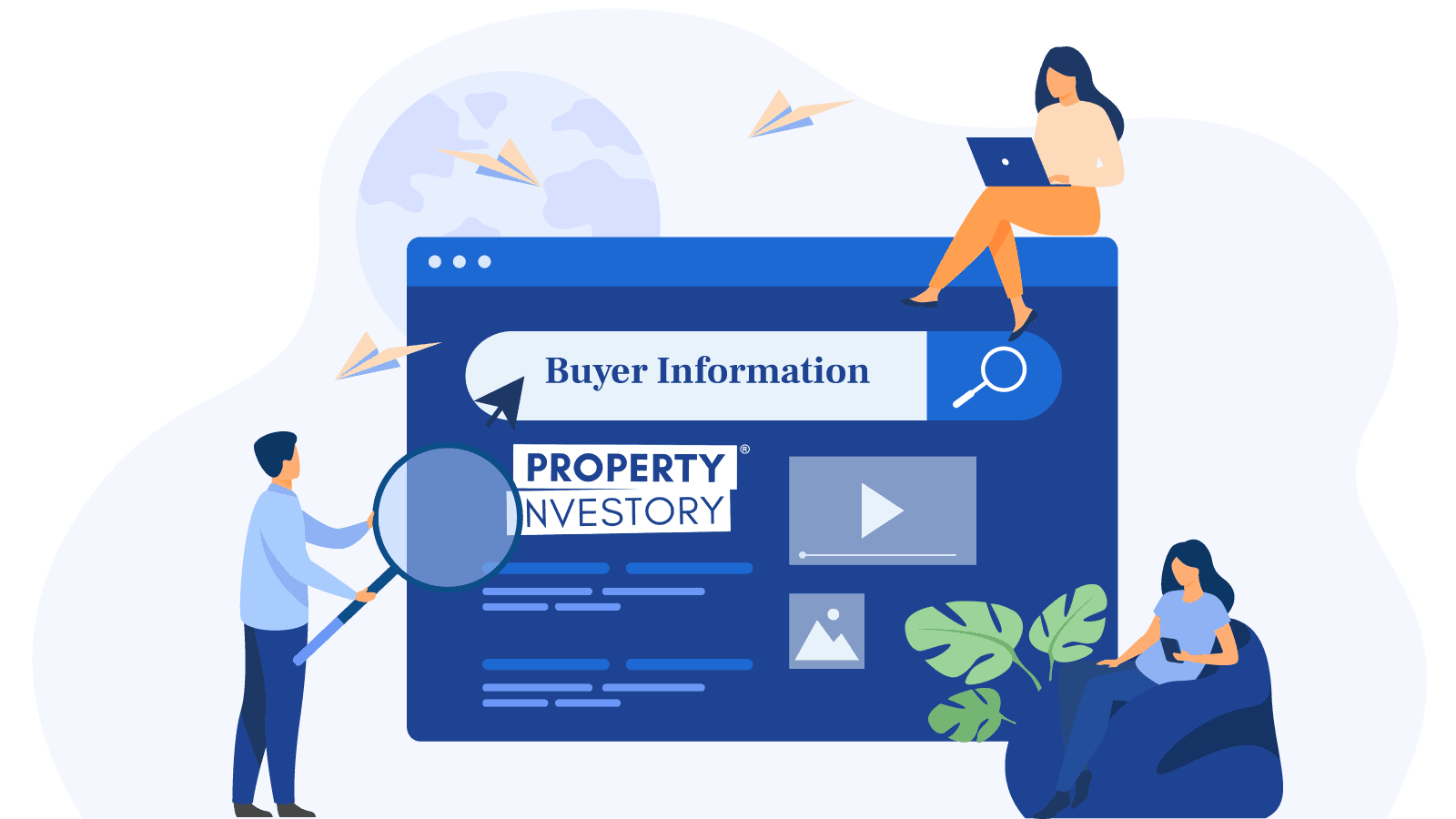
Following on from that point, the education aspect of the experience isn’t just for the buyer. The buyer’s agent must also learn as much as they can about the buyer to find the best property for them.
Remember Goose? For him, learning as much about the buyer as possible allows him as an agent to figure out what buyers need to learn and the type of strategy that will suit them best.
As such, as a buyer, you can expect to undergo a fairly extensive information-gathering process.
A good buyer’s agent will ask you about every detail that you require in a potential property. If you’re buying the house to live in, they’ll ask about the number of bedrooms it needs and any special features you want. They’ll talk to you about the compromises you’re willing to make and discuss budgetary issues.

If what you want isn’t possible in your budget, a good buyer’s agent will tell you honestly and come up with alternatives.
For an investor, this process goes a step deeper.
Now, the buyer’s agent wants to know about your strategy or if you don’t have one they will help you create it. They’ll talk to you about the local rental markets and what they mean for you as an investor.
A good agent will also handle research for you, which means you quickly find properties that fit your goals and what the market needs.

In fact, Brian McNicol, the CEO of the buyer’s agency, aptly named ‘Commercial Property’, has always valued this role of the buyer’s agent. After collecting information from the buyer, he gathers market data that is relevant for that buyer’s goals and strategies.
Originally an investor in residential properties, Brian built a portfolio of 14 properties.
However, he later made the switch to commercial due to the stability that tenants offered on long term leases. Now, he helps other investors make wise commercial purchases.

In one of my conversations with him, he summarised his duties as a commercial buyer’s agent who makes sure he acts on the information gathered for and from the buyer:
‘As the name suggests, I basically specialise in just finding commercial property for my [clients]. On a daily basis, I’m researching. If there’s a property I’m interested in, I’ll ask for the information memorandum (IM)..., get in contact with my clients and do a rough ‘feasy’, and where it’s appropriate, we make an offer and basically help the client follow through to a successful purchase of the property.’
Now, imagine this process multiplied over hundreds of properties and you get an idea of the scale of the work involved. You get the idea.
A commercial buyer’s agent spends much of their time gathering information for clients. They take the client’s needs, examine the market based on them, and come back with opportunities.

This research is key to the success of any investor or buyer like you. Without it, you may rush into an opportunity, only to find that it doesn’t suit your strategy.
Agents like Brian handle the heavy research load so that their clients can focus on the investing part or have more time to do other things they enjoy.
Now, it’s only after gathering all of the information needed that the agent will take on the next role—locating suitable properties for you!

Once buyer’s agents have the information that they need from you, they start searching for properties. Typically, an agent will present several properties to you at once, each with a report on its pros and cons.
Simon Loo, the founder of House Finder and a successful investor, is a buyer’s agent who is adamant in helping investors locate the best properties that are apt to their goals and needs.
He brings top-notch education and investment experience to the table.

I remember when he shared with me his experience of purchasing his first property, he took a lot of time to do his research and found multiple properties to choose from.
He said: ‘It was actually off the back of a lot of research and a lot of build-up towards that first property—like most people when they’re about to buy their first property.
So, it was back in late 2009. But even before then, I really spent every weekend checking out units in various suburbs around the place, just looking everywhere and getting my foot in the door of as many open houses as possible.

I’d do all the research the week before, then find out which properties I’d go to and line them up on Saturday—just go bang, bang, bang, one after the other.’
With such passion as an investor himself, he now employs the same enthusiasm as a buyer’s agent when looking for properties for his clients.

In fact, part of Simon’s services as a buyer’s agent is to mentor his clients. He equips his clients with the right knowledge for developing a good eye for property.
The key to remember here is that buyer’s agents work in your best interests.
That means that they’re not thinking about landing a commission from a seller while they work with you.
Now, if for instance, you are already an investor with residential properties who wants to transition to buying commercial properties, buyer’s agents are key to aiding you in that transition and locating suitable properties according to your direction.
And that’s where buyer’s agents like Chris Lang come in.

Chris is the CEO of both Property Edge Australia and Property Made Easy. Like many, he started his journey as a residential investor. And he learned first-hand just how hard it is to transition from that to commercial property.
When I talked with him, he mentioned a notable observation: ‘A lot of them are making the transition from residential to commercial. And the reason for that is commercial property provides you with a net return of somewhere between five and … seven [per cent return]...on your equity.’

Yes, a good buyer’s agent can help you to adjust your investing mindset.
Most particularly, commercial buyer’s agents can help investors overcome some initial hurdles in making the transition from residential to commercial.
A buyer’s agent like Chris can help you ease into the commercial space through their work. That ensures you don’t make the same mistakes that others who try to transition alone will make. And along the way, of course, they’ll work in helping you locate suitable properties to invest in or purchase.
So, remember, a good buyer’s agent—whether residential or commercial—can help you locate suitable properties aligned with your goals and direction.

Now, to explain this next role of a buyer’s agent, let’s go back to Simon Loo—particularly into what he does to spot patterns in the market.
And any good buyer’s agent should be able to spot patterns and trends in the market, especially when working with investors. And how Simon does that is through research and attention to detail.
He once shared with me a process he does when looking at the details in the property market:
'There’s a lot of reasons why people need to sell properties urgently. So, that’s when people like me—for myself and as a buyer’s agent—I get exposed to a lot of these types of deals, and that’s where I come in.
And, depending on the price, I do my own research based on the last three months of what’s sold in the same suburb in the surrounding streets that are of a three-bedroom, one-bathroom, one-garage nature.
And if I could pick up the property for, say $310,000 or $320,000, [when it’s advertised for $350,000] then you know that you’re below market value.
You’re probably getting a decent deal if there’s not too much issues with the house...You’ve just got to look at it as it is and what the comparables are.’

Indeed, capable buyer’s agents like Simon makes sure to look at the market trends and assess patterns. They evaluate them and see if potential properties you are eyeing to buy are—

You have to remember: The property market isn’t static.
On a macro level, the property market has its ups and downs over time. When you boil down to the micro level, you will see that every suburb has its own localised market. Examining these markets helps you to identify patterns that you can leverage when buying.
But it also takes a lot of time to gather that data.
Buyer’s agents like Simon Loo handle all of this work for you. That means they can provide guidance on a property’s potential performance, as well as its current one!

Now, after spotting patterns in the market relevant to you, a buyer’s agent then searches custom deals for you.
For buyer’s agents, creating custom deals for clients means finding manufactured equity deals for them.
In fact, successful property investor and owner of Australian Property Scout Sam Gordon makes sure he accomplishes this role as a buyer’s agent: ‘I do what I call manufactured equity deals. So, duplexes, subdivisions, wholesale land and builds and stuff like that.’
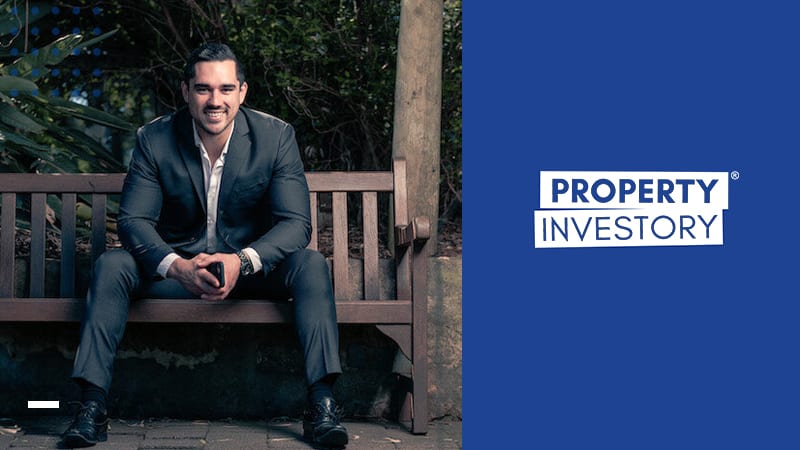
In other words, Sam finds properties that suit a particular type of strategy. This move allows him to create customised deals with the strategy relevant to the buyer.
It may mean buying existing land where you can build duplexes or has subdivisions potential.
Or, it could involve ffinding properties that have the potential to become something different with the right investor.

And of course, as part of their work when deals are presented on the table, a buyer’s agent can also handle negotiations on your behalf.
They can talk to the seller for you to find the best price.
Or, they could attend auctions on your behalf, thus removing emotion out of the equation... which now brings me to share with you the last role of a buyer’s agent in this article: negotiating and purchasing the best deals.


Sixty per cent of people—that’s how many respondents told the Real Estate Buyers Agents Association of Australia (REBAA) that overpaying at an auction is their biggest fear.
In fact, founder of Cate Bakos Property in Melbourne and successful buyer’s agent Cate Bakos pointed out that she’s worked with a ton of clients who have that very worry:
‘Some buyers are genuinely petrified of bidding in public, much like speaking in public, although adrenaline and a firm plan can usually help get them past this hurdle.’

It is undeniably true that auctions can stir up some pretty powerful emotions.
Unfortunately, many investors or property buyers walk into an auction with a plan, only to find themselves in a bidding war.
They get fixated on a property that they feel like they need to have. And this situation leads to them overspending and putting themselves on the back foot.

Many buyer’s agents offer an auction bidding service. That means that they learn from you what you want in a property.
Most importantly, they go in knowing exactly what you can afford to spend.
If an auction goes to the wire, a buyer’s agent takes an emotionless approach. Instead of bidding just a little more, they’ll pull the plug and stop you from overspending because they know your budget and goals.
Furthermore, good agents go into auctions with strategies that increase their chances of winning.
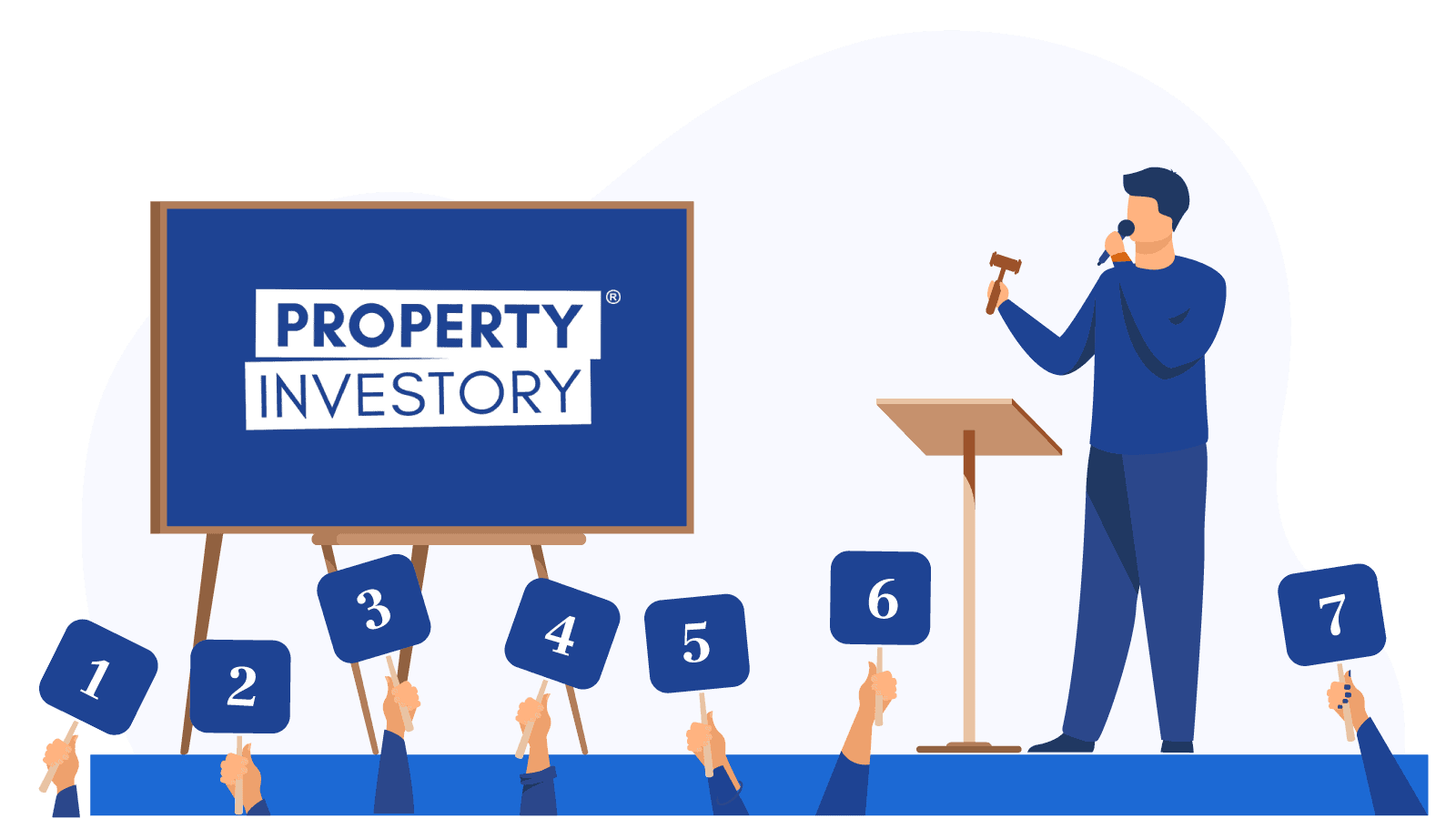
Looking at how buyer’s agents effectively handle auction bidding for the benefit of property investors like you and me, I am reminded of the fact that good buyer’s agents basically put the ball in the buyer’s court, so to speak.
Yes, letting emotions run amok (albeit unintentionally) not only in auction biddings but also in negotiating and searching for the best deals: It’s a scary thought, especially if you’re working on a tight budget. Losing control of your emotions could cost you tens of thousands of dollars.
So, what can you do?
Again, a buyer’s agent can come to the rescue.

David Glover is one of Australia’s most well-established buyer’s agents.
As the owner of Bluegum Property, a buyer’s agency specialising in land and development for sale properties, he works primarily with developers.
His goal is to help his clients find ideal sites for their projects with the best deals. And much like many buyer’s agents, David’s story starts when he decided to invest in property.

When David started his investing career, the concept of a ‘buyer’s agent’ didn’t really exist. Instead, buyers had to work with sales agents who had a vested interest in achieving the best result for sellers not the buyers themselves.
And so, that means that he struggled to find suitable properties and the best deals available.
However, all that changed when David worked with a sales agent named Jeff. Instead of pressuring him into a deal, Jeff helped David to find the perfect property for his needs. Jeff took him to different properties to consider.

Although he didn’t know it at the time, David had just discovered what a good buyer’s agent does: searching and negotiating for the best deals according to the client’s property needs.
In this case, the agent gathered information on the fly and used it to find the ideal property that had the best deal for the buyer.
Today’s buyer’s agents dive much deeper, as I mentioned earlier.

So, don’t forget: A great buyer’s agent aims to put the ball in the buyer’s court. They’ll help you to see when a seller wants too much for a property. Plus, they’ll negotiate on your behalf to lower that asking price. This case often means that you land a property for below its market value. (Cool, right?)
Having a buyer’s agent by your side means that sales agents can’t coerce you into paying more.
You always have somebody looking out for you to ensure you don’t spend unwisely.
In a nutshell, a buyer’s agent is a champion on your court, handling bidding auctions—without any pesky, unnecessary emotion—and ensuring you’re not overpaying or missing out on opportunities relevant to your property journey.

Are you convinced yet? Maybe, you are. But now you’re asking this question:
Is it worth investing in a buyer’s agent?
If you’re looking to buy a property, either for yourself or as an investor, or you’re building an investment portfolio, then my answer is a resounding ‘yes’!
While the fees you’ll pay to work with a buyer’s agent may seem expensive, you need to consider the value they bring.
If you were selling your property, would you sell it yourself or hire a real estate agent? I would probably advise you to use a real estate agent.
Using a buyer’s agent is no different.
While real estate agents help you get the buyers you need for the property you’re selling, buyer’s agents work for you in helping you search for and buy the ideal property according to your goals and needs.
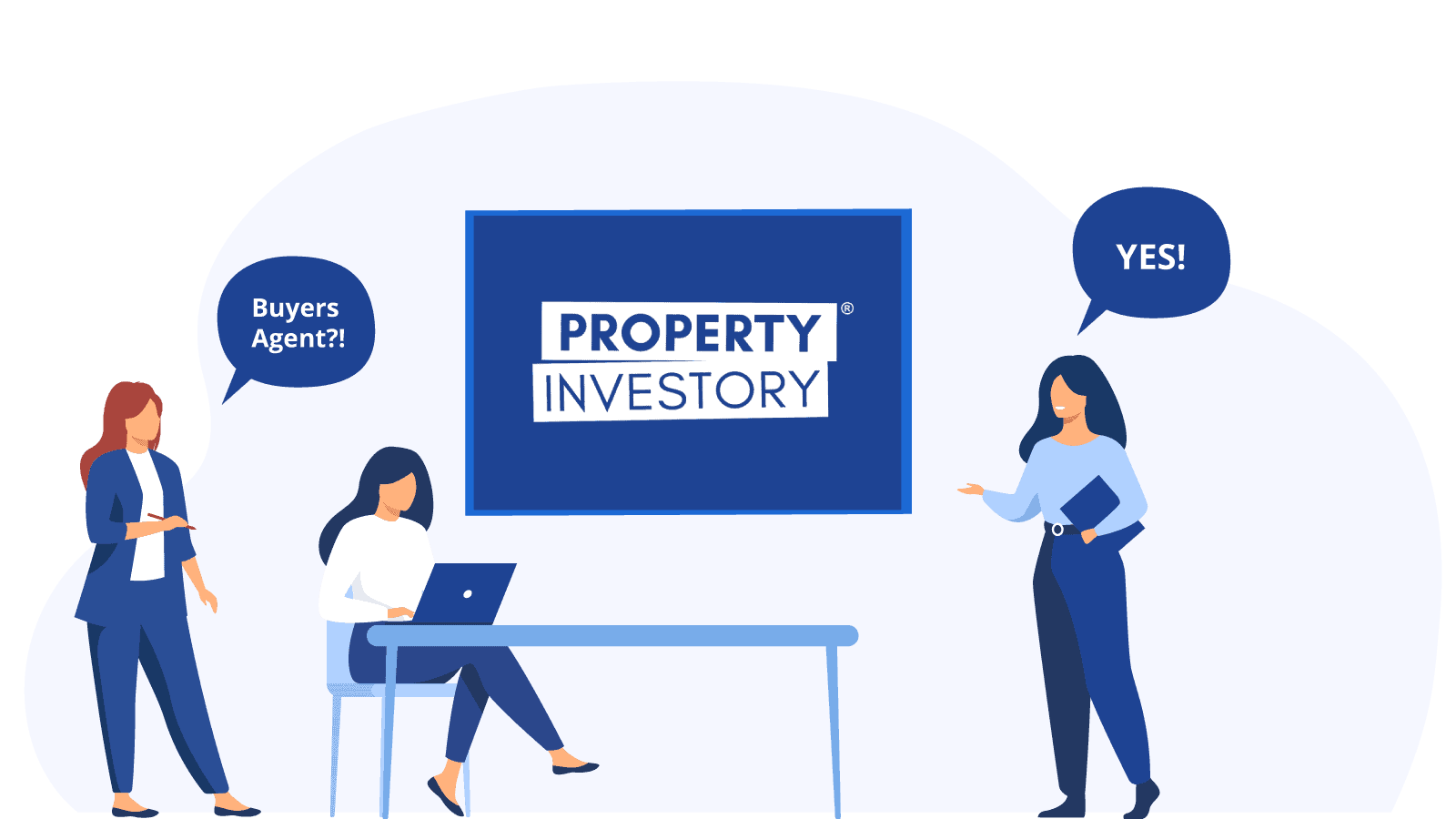
To summarise, here are the big reasons why I believe it’s worth investing in getting a buyer’s agent:
Indeed, a great buyer’s agent can make all of the difference when you’re searching for a property!

Now, if you’re looking for a buyer’s agent, we at Property Investory can help you!
We’ll recommend the buyer’s agents suitable for your goals and needs. All you need to do is contact us by clicking on the button below. (As easy and convenient as that!)
Are you a first-time homebuyer?
Are you building your investment portfolio?
Or, are you a savvy, experienced investor in the commercial or residential space?
No matter which of these you are, your goals do matter. Let us help you with your property journey. We will do our best to connect you with the best buyer’s agents in the market!

THE TOP 5 FREQUENTLY ASKED QUESTIONS ABOUT BUYER’S AGENTS
1. What is a buyer’s agent?
In simple terms, a buyer’s agent is a champion for your what’s best for you and your property goals.
The key roles of a buyer’s agent are explained in great detail in the article, here they are in summary:
2. Why do I need to use the services of a buyer’s agent?
Basically, if you want to exhaust one of the best means to acquire a property for the best price—that won’t deplete you or your funds but actually will be good for you and your future finances—, you’ll need a buyer’s agent.
3. What type of buyer’s agent do I need?
If you’re looking to buy a house in the suburbs or city, perhaps to rent it out for passive income or for you and your family to move in, then a residential buyer’s agent can help you get the very best deal possible in the market.
Residential buyer’s agents examine the local property market, making sure your goals and strategies are met as they advise you on the best ways to deal with transactions, reports, disagreements and counteroffers.
On the other hand, if you’re looking to invest in commercial real estate, such as warehouses, office or retail spaces, or anything that operates a business, the type of buyer’s agent you need on your team is a commercial buyer’s agent.
4. How much does it cost to hire a buyer’s agent?
First, the cost of an agent depends on the services you need them to provide.
Second, agents differ in terms of the payment structures. Some work on fixed fees, whereas others work on a commission-based model or a mix of both. And each of these models has its pros and cons.
5. How do I find the best buyer’s agent I need for my property journey today?
If you’re looking for a buyer’s agent, we at Property Investory can help you! We’ll recommend the top buyer’s agents suitable for your goals and needs.
All you need to do is contact us by clicking on this link. Let us help you with your property journey. We will do our best to connect you with the best buyer’s agents in the market!
If you’re craving for more insights about buyer’s agents, check out the article above. We’ve spilled all the juicy, helpful details you’ll need to know on your property journey today.
DO YOU WANT MORE?
You can listen to the latest podcasts and check out the latest updates on Property Investory.
Meet the agents to stars such as Cate Blanchett, Baz Luhrmann, Hugh Jackman and Nicole Kidman
The Boy from Oz: Hugh Jackman's property path from two-bedder to trophy homes
What you need to know about using a buyer's agent | finder.com.au
Survey reveals 'overpaying' is the number one fear buyers have at auctions: REBAA
Buyer's agents: are they worth the money?
The 10 Biggest Mistakes I Committed When I Purchased My First Commercial Property
Leasing Out Commercial Property Brings Its Challenges. Here's What You Should Look Out For…
The 9 Benefits You Can Gain … From Investing in Commercial Property